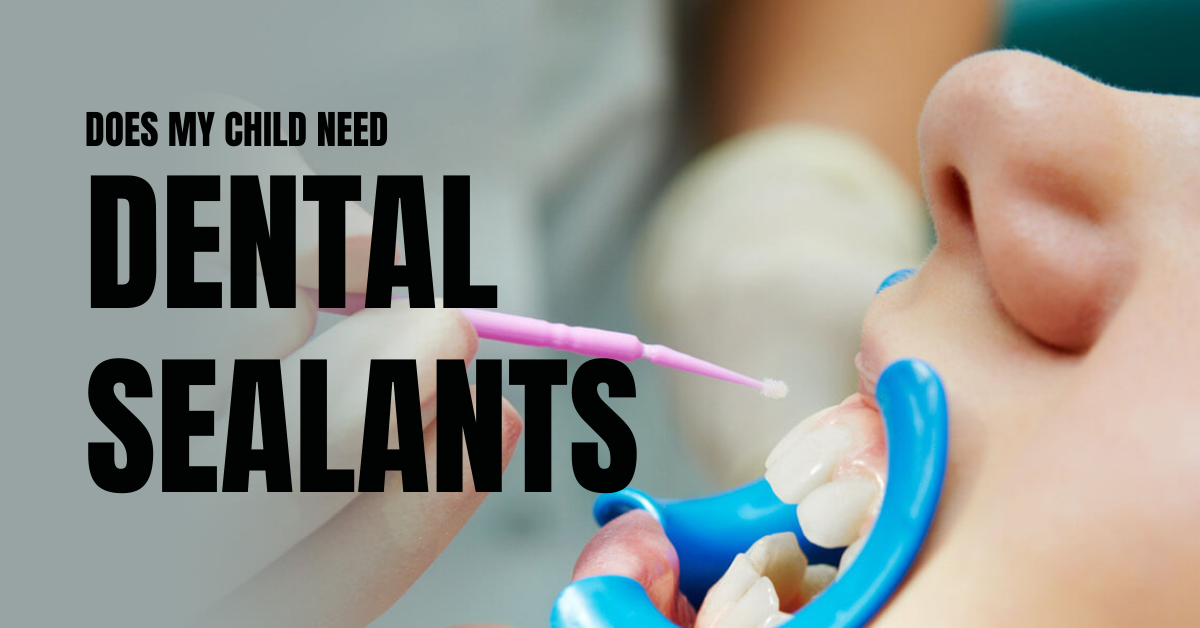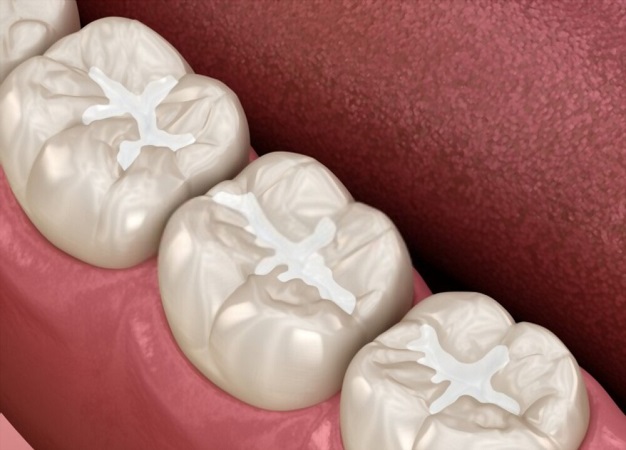What are Dental Sealants?
Dental sealants are a thin protective coating that is applied to the premolar and molar surfaces of the teeth to seal them and protect them from food particles that might cause germs to proliferate and decay.
Who Can Use Dental Sealants?
Children and teens between the ages of six and fourteen are advised to have dental sealants since they are more prone to get cavities.
Adults without tooth decay or fillings might also benefit from dental sealants.
Sealants should be applied as soon as the child’s permanent teeth begin to erupt for the greatest effects. If your primary teeth are worn out, you can use dental sealants to protect them. It’s important to remember that primary teeth serve as placeholders for permanent teeth. If they are lost too soon, diastema and crowding may develop, necessitating the use of braces and other orthodontic procedures.
How Do They Work?
Brushing and flossing aren’t always sufficient. Even if you practice good oral care, you may overlook the rear teeth, which are more susceptible to bacterial development and cavities. These dental sealants not only protect your teeth but also help to prevent bacteria from growing and keep the tooth structure in good shape.
Tooth sealants, according to a study, can prevent up to 80% of dental cavities in the first two years following application.
How Long Do the Dental Sealants Last?
Dental sealants, according to the CDC, can last up to nine years, but their effectiveness is dependent on how they are placed. If not done appropriately, dental sealants have a reduced likelihood of success. As a result, you should go to a board-certified dental facility like Berwyn Dental Connection. Our dentist will keep an eye on your sealants to make sure they don’t start to wear off.
What Happens If My Child Develops Cavities?
Tooth extraction is used to pull impacted, damaged, or rotting teeth. Dental sealants protect against cavities, but if your kid develops tooth decay, there are numerous restoration procedures available. Remember that permanent teeth do not regrow and will need to be replaced with dental implants or other orthodontic treatments if you lose them.
The diseased pulp is removed during a root canal surgery, which prevents the infection from spreading to the surrounding tissues. The jawbone structure might be permanently altered by these restorative dental procedures. Furthermore, the treatments need ongoing maintenance, which may be costly.
Are There Any Complications?
Dental sealants are generally harmless, although they might trigger allergic responses in certain people. Furthermore, three hours after application, the sealants may raise salivary BPA or Bisphenol A levels.
Plastic is the most popular dental sealant material, and it comprises Bisphenol A, a synthetic resin.
Thyroid function, the central nervous system, and the immunological system have all been linked to BPA. Yes, dental sealants can raise BPA levels in the saliva. It’s not a cause for concern, though, because BPA levels return to normal after 24 hours and have no negative consequences. Other dental sealant materials are available, however, they may not be as effective.
Dental Sealant Application?
The application of plastic coatings to the teeth takes only a few minutes. The dentist will clean your teeth and apply an acid solution to the tooth surface after examining your dental health. To enable the sealant to adhere to the tooth, this solution hardens and roughens the enamel. The dental sealant will then be repaired.
How Much Do Dental Sealants Cost?
The average cost of dental sealants is $60 per tooth. We do, however, accept a variety of adult and kid insurance coverage. When you’re ready to receive the sealants, give us a call and we’ll work out a payment plan for you.
Take Away
Is it necessary for your child to have dental sealants? Yes. Children and teens, as previously said, are prone to tooth deterioration. Brushing and flossing are important, but they may not be enough to support their jaw and permanent teeth as they grow.
Book an appointment with Berwyn Dental Connection, if you want to get dental sealants for children in Berwyn, IL. Our dentist will also go through the various dental procedures that are appropriate for you and your child.


